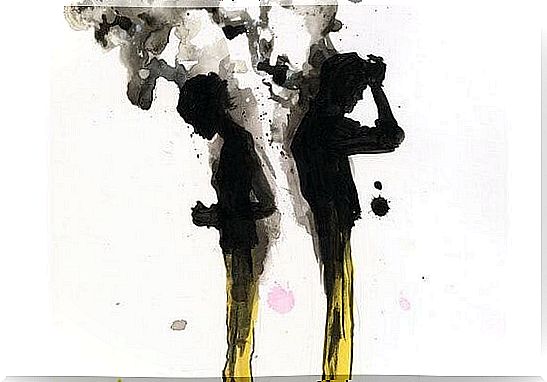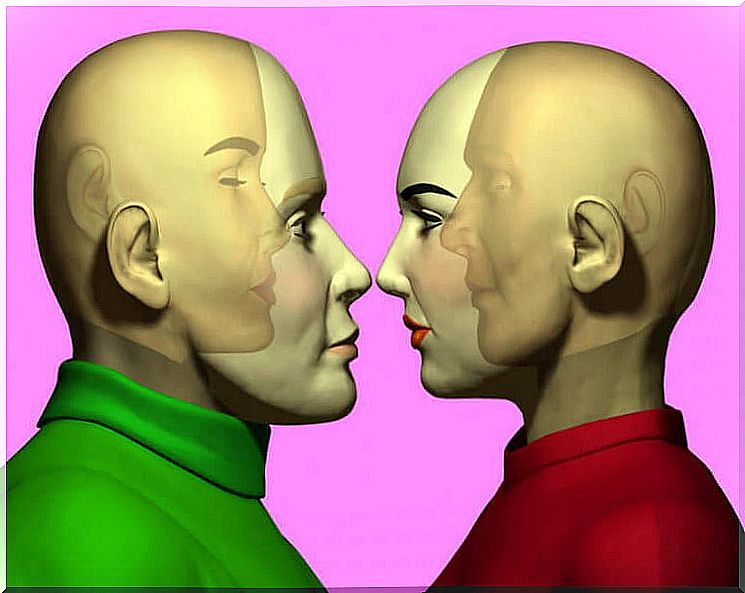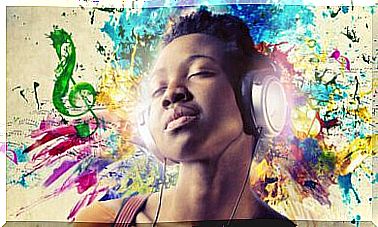Empathy: What Is An Empathetic Person Like?

Empathy is a skill, an exceptional, genetically programmed ability by which the brain tunes to other people’s feelings and intentions. But the problem is this: not everyone succeeds in “igniting” this fire that illuminates the way to the most stable and rewarding human relationships. What is an empathetic person like?
We hear a lot of phrases like “that person lacks empathy,” “he’s so self-centered, he doesn’t feel empathy at all.” However, it is good to clarify something important at the outset: the structure of our brain is well suited to the formation of those “connections”.
In the end, empathy is just one of the strategies that help us survive as a species: it helps us understand the other person and it makes it easier to build a deep relationship with him.
The area of the brain where empathy, according to neuroscience, is located is to the right of the supramarginal fold, the point between the scalp, temporal lobe, and anterior lobe. Thanks to the action of these neurons, we are able to differentiate our feelings and cognitions from each other to be more receptive to others at any given moment.
Now that that has been clarified, the next question that comes to mind would be “if we all have that brain structure, then why are some people less empathetic than others and some lack the ability to empathize even completely?”
We know, for example, that one of the main features of antisocial personality disorder is the lack of emotional connection to other people. But if you now ignore clinical or psychopathological factors, there are a lot of people who simply never develop empathy.
Early experiences, upbringing patterns, and even a person’s social context can make this awesome ability diminish. These things can make a person very self-centered. The problem has gotten so bad that, according to a study by the University of Michigan, college students are now 40% less empathetic than students in the 80s and 90s.
In today’s world, there are so many stimuli and distractions for young and old people that we cease to be fully aware of the present moment and even the person in front of us. People are more in tune with their electronic devices than other people’s emotions, and this is a problem we should consider.
To delve deeper into this topic, we recommend looking at the traits that define people who have a functioning and genuine self-esteem that is essential for building healthy relationships and developing social skills.

Functional empathy and projective empathy
One basic thing that is worth explaining first is what is meant by effective empathy. You may be surprised that just feeling empathy is not enough if you want to build stable relationships or be socially adept at interacting with other people on a daily basis.

It is a fact that many people who are able to feel empathy mentally and cognitively for others (i.e., they feel and understand what is going on) do not help another to channel and properly manage their discomfort. Instead, they amplify it.
An empathetically skilled person, on the other hand, is able to take the position of another person, knowing at any time how to be useful in the process without causing harm or acting like a mirror and amplifying the other’s pain. Because sometimes it is not enough to just understand, but you also have to be able to RESPOND correctly.
There is no room for criticism in true empathy
Criticism from other people prevents us from truly getting close to them. It puts us in a certain tray, on the other side of the glass, where the perspective is very limited: our own. It should also be noted that it is not very easy to listen to another without criticizing him internally. It is difficult to listen without stigmatizing a person as capable or clumsy, strong or lost, mature or immature.
But we all do it to some extent. If we could remove that lens, we would see people in a more authentic way. We would live much better and understand another person’s feelings.
It’s something we should practice every day. According to numerous studies, it is a skill that grows as we age. For the ability to empathize, such as the ability to listen without criticism, increases with experience.
Empathetic people are well aware of emotions
Empathy is an essential part of emotional intelligence. This aspect of science or psychology and personal growth is now in vogue, but… have we really learned to control our emotions well?
The truth is, we don’t really. Today, you still see a lot of people tossing around terms like self-control, perseverance, proactivity, self-confidence… But they lack real awareness of feelings, and they still give a feeling of anger, rage, or frustration to grab them like a toddler.
Other people, on the other hand, think that “empathy” means suffering. It’s as if the emotions are contagious and you feel what the other is feeling to experience the same pain as him, just as if you were imitating his pain.
This is not enough. We need to understand that healthy, functional, and constructive empathy comes from a person who controls their own emotions, has a good self-esteem, knows how to set boundaries, and is mentally and intellectually adept with other people.

Empathetic people and social engagement
Neuroscience and modern psychology define empathy as a social glue that holds people together and creates a genuine, strong commitment between them.
As strange as it may seem, empathy exists in the animal kingdom for a very specific reason, as we showed at the beginning: because of the survival of the species. For the same reason, many animals and different species behave cooperatively despite the classic idea of the survival of the strongest. An example of this is some whales, which in fact attack swordfish to protect seals.
But the opposite is usually true among our people. That is, our need to be above others, looking for enemies, drawing boundaries, building walls, marginalizing people. Or even attacking the weakest just because they are weaker or different ( think bullying).

Empathetic people believe in social engagement. For survival is not a business and should not be seen as political, self-centered and selfish. Survival is more than just beating our hearts. It includes dignity, respect, a sense of being valued, freedom, and being part of something greater where everyone is valuable.
This is true empathy: putting oneself in someone else’s position and living together full of peace and harmony. It requires work.
Sources
-Luis Moya (2013) “Empathy, an enthusiast para entender a los demás” . A Coruña: Plataforma Actual
-Frans de Waal (2009) “The Age of Empathy: Nature’s Lessons for a Kinder Society” New York: Three Rivers Press









